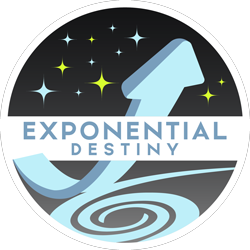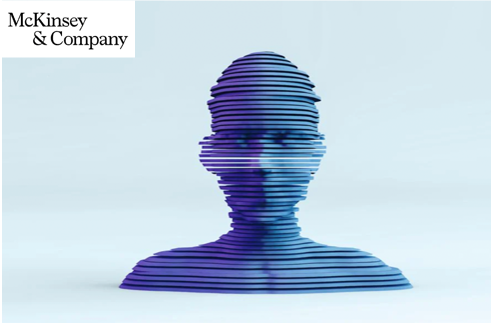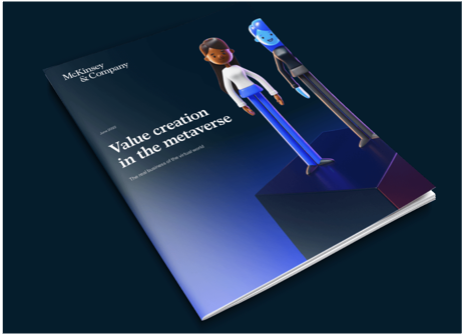What is the Metaverse?
Below are links to several additional resources intended to give a broad and general overview, as well deeper-dives for those that are curious, about understanding and learning “What is the Metaverse”.
However, for specifics on how our team at Exponential Destiny is using Virtual Reality and related capabilities of the Metaverse, please refer to our case-studies for how we are working with schools and social impact organizations in “OUR PROJECTS & APPROACHES” and other sections of this website, as this section is intended to provide a more general perspective on how the economy at large is starting to adopt the Metaverse, including how businesses across different sectors are exploring this emerging field and innovation.
In these articles, reports, videos, and podcasts there are different perspectives and descriptions of the “Metaverse”, including Virtual Reality (“VR”) and Augmented Reality (“AR”), often referred to collectively as Mixed Reality (“XR”).
Please also review Exponential Destiny’s opinion and position on “RISKS & CONCERNS OF VR” which we acknowledge as requiring attention and focus as this technology evolves.
In this short video (above), Exponential Destiny Co-founder and CEO, Marcus Shingles, shares a brief description of what the Metaverse is, including distinctions between virtual reality (VR) vs. augmented reality (AR) , as well as how NFTs and blockchain technology may play a role.
Mark Zuckerberg, CEO and Founder of Facebook, in 2021 changed the name of Facebook to “Meta” as he positioned the company’s strategy and investments to focus on this “next generation of the internet”. NOTE: This perspective is biased considering its from the CEO of a company that is promoting this new capability, nonetheless it is a good video to hear from one of the pioneers in the field.
The above two McKinsey & Company 2021/2022 Reports give a more detailed and intricate opinion and description of ”What is the Metaverse?” Click on each photo to visit the respective full report.
How will businesses use the metaverse?
A video summary of projects delivered by members of Exponential Destiny by commercial organizations using the Metaverse/VR in their businesses
A podcast interview by Exponential Destiny CEO discussing how businesses will use the Metaverse
A video by The Economist describing what is the Metaverse and how will it be used by businesses
A video by the BBC describing what is the Metaverse and how will it be used by Marketing Brands
BEYOND ALL OF THE HYPE, WHY ARE WE EXCITED ABOUT THE POTENTIAL OF THE METAVERSE, SPECIFICALLY VIRTUAL REALITY?
ANSWER : IMMERSIVE & EXPERIENTIAL LEARNING & EDUCATION
Training and Learning in VR Compliments – and May Even Outperform – Classroom or On-Line Methods
Faced with the issues and market failures in the public education system (per above), it is clear that innovation is essential to meet these challenges. Fortunately, in early 2020 there was a significant inflection point in the advancement and innovation of virtual reality (VR) capabilities – i.e., exponentially improving quality of experience combined with dramatically declining cost for hardware and software. As important, there were some early efficacy studies that were emerging that were signaling game-changer potential when introducing immersive and experiential methods of learning to students within VR.
One noteworthy initial efficacy study really struck a chord with us at Exponential Destiny. Specifically, the following 2020 Price Waterhouse Coopers (PwC) independent study (see Chart) :

View the full PwC report here.
The report highlights the dramatic (exponential vs. incremental) improvements in training and education when comparing learning in Virtual Reality to classroom and on-line learning approaches.
Furthermore, what was interesting to us at Exponential Destiny about this PwC study is that it was released in 2020, thus was actually preformed using VR technology from 2019, which was pre-Covid pandemic. We knew that due to the global Covid pandemic, there was a sharp and sudden rise in interest and demand for remote digital collaboration, and we observed first-hand how innovation in VR technology accelerated dramatically in 2020 and 2021. Thus, our feeling was that this PwC study was already outdated since the technology had advanced so much since this study was conducted, and therefore our assumption was that the integration of VR into education using the latest VR tools would most likely be significantly more effective and impressive if conducted today.
This is part of our mission today for why we created Exponential Destiny, to further explore this untapped potential of VR being used in education using the latest technology available, and specifically when applied in public schools in marginalized communities where the education system is suffering the most.
However, our big question was whether the impressive results of the 2020 PwC study (above) – which was more centric to corporate training and education environments – could be achieved in the public education system, and furthermore could it be effective, affordable, and scalable in under-resourced – even struggling – lower income communities?
This curiosity – as to the real potential of VR in public education within under-served communities – is the basis of the work we do today.
We feel there is real potential because from our own work in this field we know that the technical aptitude required to create in these environments has become very low; for example, the required skillset to become a creator in the metaverse, using various new Metaverse design platforms, was more akin to “power-point in 3D” vs. writing computer programming code. In other words, a non-technical person, like a high school student or teacher, using no programming/coding skillset, could create and even thrive in using and even developing these virtual environments. We see the potential opportunity for a school to be self-sufficient and not dependent on outside costly resources, since students and teachers can be easily trained in these environments and use the capability to create new educational pedagogies.
Also, in talking with educators, it was clear a teacher in an under-performing public school would be ecstatic with even fractional results as was reported in the PwC efficacy study, and thus we felt this potential result would be an incentive for a traditional school (not typically willing or able to try new things) to at least experiment and explore the potential of this new capability.
Lastly, since Exponential Destiny’s leadership team was comprised predominantly of recent high school graduates from an under-resourced school community in south-central Los Angeles, we knew first-hand the potential to use these immersive and experiential digital environments to entice and engage students to partake in their education. We personally discovered how fun and creative it was to learn in VR, especially when applying “edu-tainment” based methods, incorporating prize and game-theory.
The puzzle started to come together, and at Exponential Destiny we felt a passion that led to the formulation of a mission to explore, research, and pioneer the adaptation and adoption of VR and related Metaverse innovations into the struggling public education system to address the Issues and Market Failures described previously (above).
As a result of doing our own experimentation with introducing VR into public high schools in under-resourced communities, we have developed some of our own research results and insights. You can review those here.

Follow Us
Follow Us

